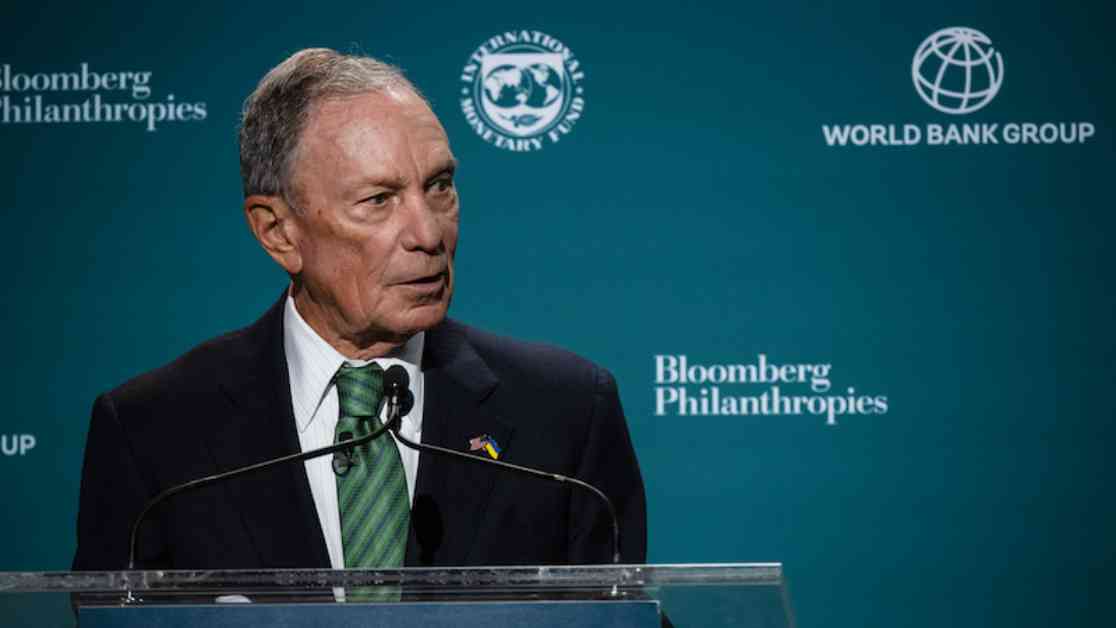**Bloomberg Saves the Day: Pledges to Fill US Funding Gap at UN**
American billionaire Michael Bloomberg swoops in to the rescue as the US faces a funding crisis at the United Nations climate body. With President Donald Trump putting the brakes on America’s financial commitments to the UN Framework Convention on Climate Change (UNFCCC), Bloomberg and other climate funders step up to cover the gap left by the federal government.
**A Critical Void: Trump’s Order Sparks Financial Crisis**
Trump’s executive order on day one of his term, calling for an immediate halt to US contributions to the UNFCCC, had the potential to create a significant funding shortfall. As the largest economy in the world, the US typically foots 22% of the bill for the UN body’s core budget. This financial commitment is crucial for the smooth functioning of the secretariat of the UNFCCC, following UN criteria.
**Bloomberg’s Bold Move: Filling the Financial Gap**
Responding to the crisis, Bloomberg announces that his philanthropy, along with other unnamed funders, will step in to cover the US obligations to the UNFCCC. This move comes after Bloomberg Philanthropies had already injected funds into the UN climate body during Trump’s first term, continuing the support through Biden’s presidency. In 2024, Bloomberg Philanthropies emerged as the largest non-state funder of UNFCCC activities with a hefty $4.5 million contribution.
**Global Support: Japan and Germany Lead Financial Backing**
In 2024, Japan and Germany stood out as the top financial supporters of the UNFCCC, with voluntary contributions exceeding required commitments. Japan provided $14.8 million, while Germany pitched in $10.5 million. The UNFCCC, headquartered in Bonn, Germany, relies on such contributions to carry out its vital mission of supporting countries in fulfilling their commitments under the Paris Agreement.
**Warning Signs: UNFCCC Faces Financial Challenges**
Despite the support from philanthropic entities like Bloomberg’s, the UNFCCC still faces severe financial challenges. Simon Stiell, the executive secretary of the UN body, highlighted the risks to its work unless countries step up to fill the funding gap. The shortage of funds forced cutbacks in certain activities, including the cancellation of regional climate weeks in the Global South last year.
**Uncertain Future: US Foreign Climate Finance Hangs in the Balance**
While attention has been focused on covering the US obligations to the UNFCCC, the larger amounts earmarked for international climate projects in developing countries remain unaddressed. With the US providing around $11 billion in international climate finance in 2024, the stakes are high for vulnerable nations awaiting critical support.
As the world grapples with climate change challenges, the actions of philanthropists like Bloomberg underscore the importance of collective efforts in safeguarding our planet’s future. Will other global leaders follow suit in stepping up to secure a sustainable future for all?














